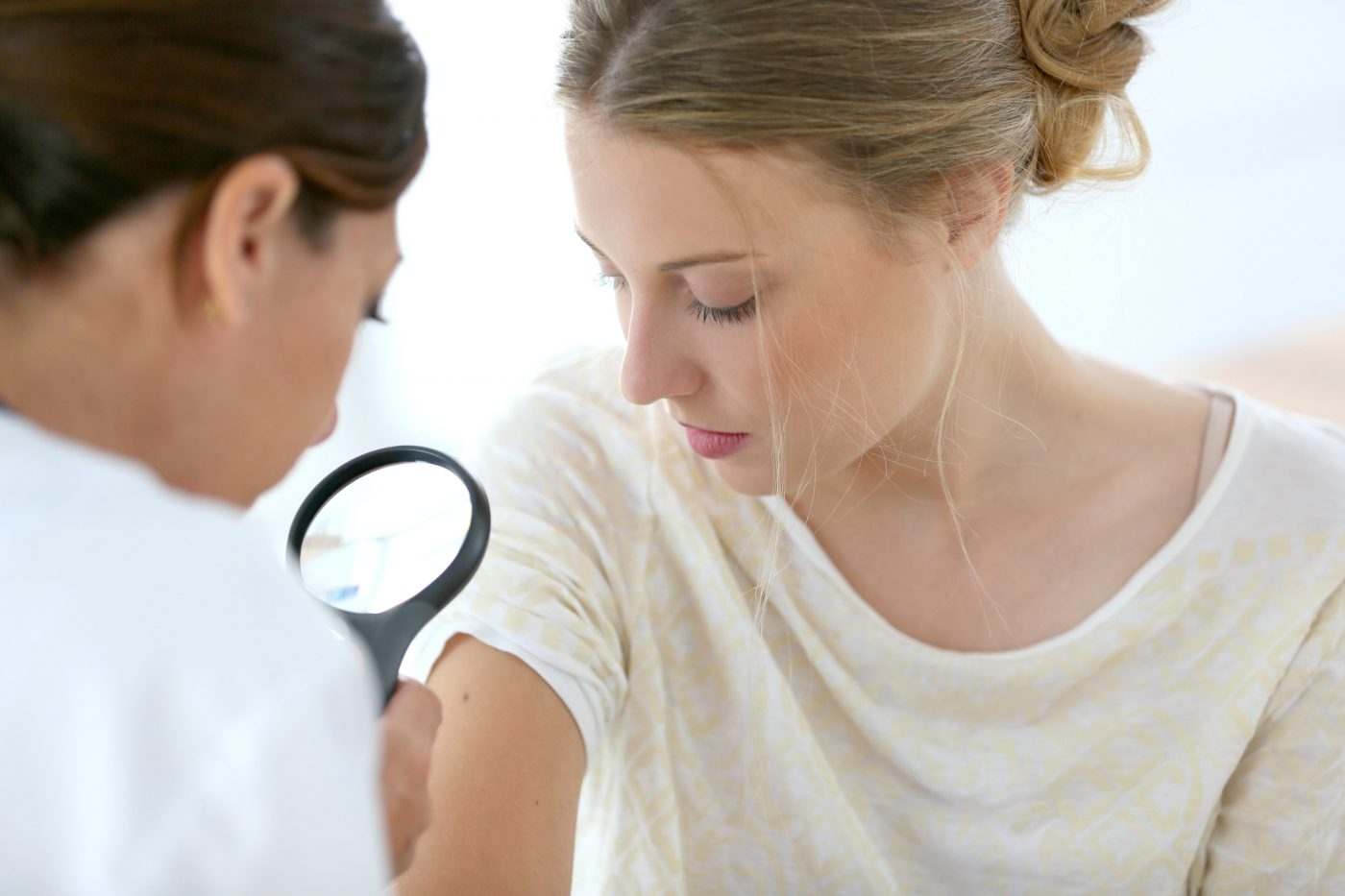Table of Contents
Are you thinking of scheduling a skin cancer screening?
Although you might not give it much thought, skin cancer is an ever-present danger. Statistics show skin cancer affects 1 in every 5 Americans and claims 2 American lives every hour. For these reasons, monitoring your skin for any signs of cancer is key.
Along with completing self-exams, you should schedule skin cancer screening regularly. By scheduling these exams, you can catch cancers like basal cell cancer early and give yourself the best chance at a full recovery. If you are wondering when you should have your skin screened for skin cancer and what to expect, this short and simple guide is for you.
What Is Skin Cancer Screening?
Skin cancer screening is an in-depth examination of your skin. Your doctor will look at all of your skin for signs of squamous cell cancer, melanoma, basal cell, and more.
Who Should Get It?
While everyone should have their skin screened, some are more susceptible to skin cancer than others. If you are fair-skinned with light hair and eyes, have more than 50 moles, have a history of melanoma, or have experienced intense sun exposure or sunburns, consider having your skin screened.
How Often Should You Get It?
You should start scheduling skin cancer exams as early as 20 years old. Ideally, you should have your skin examined once a year.
How Should You Prepare for the Exam?
Before you have your health care provider exam your skin, you need to prepare for the appointment. Make sure to remove all makeup and jewelry. You should also remove anything that is covering the skin, such as bandages.
What Should You Expect During the Exam?
The visual exam is quick and effective. Your doctor will use a bright light and a magnifying tool to examine your skin. You should expect the exam to last no more than 15 minutes.
What Happens After the Exam?
After the exam, your doctor will tell you what they found. If they noticed anything concerning, they will take a picture and remove a small amount of tissue for a biopsy.
Self-Screening Tips
Although you should have a skin cancer screening every year, it’s a good idea to perform a self-screening monthly. Stand in front of a well-lit mirror, and look for unusual marks, new moles, changing moles, warts, scaly patches, and anything else unusual. Take a note and schedule an appointment with a doctor if necessary. One of the best ways to protect your skin is to wear sunscreen. You can learn more about UPF vs. SPF here.
This Is What You Can Expect During Skin Cancer Screening
If you are curious about skin cancer screening, this guide will help. By reading this guide, you can learn what skin cancer screening is and who should get it. You will also learn how often to have your skin screened, how to prepare for the exam, and what you should expect during the exam. By reading this guide, you will also learn what happens after the exam and helpful self-screening tips. This is the guide you need to learn about skin cancer screenings. Don’t forget to browse our site for advice on health, fitness, fashion, and more.
See Also – DIY Vitamin C Serum at Home for Last Longer Flawless Skin
11 Tomato Benefits for Skin – How to use Tomato for Face?
Best 10 skin brightening creams for inner thighs and buttocks
10 Ways to Avoid Pimple from Getting Worse



